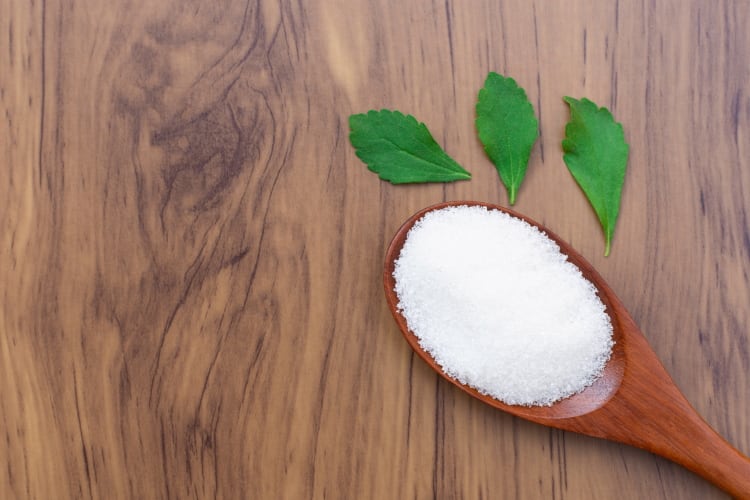Stevia, a natural sweetener derived from the leaves of the stevia rebaudiana plant, is about 200 to 300 times sweeter than sugar, yet has no influence on the glycemix index and doesn’t contain any calories. Its use in commercial applications goes back to the 1970s, when stevia was used as an alternative to artificial sweeteners such as saccharin, entering the Japanese and then the US food industries. Today, the stevia market is estimated to have a value of more than US$770m, having grown at a CAGR of nearly 10% since 2017 according to Statista.
It’s easy to see why the sweetener is popular among manufacturers, who have marketed it as a clean-label ingredient and a sugar alternative for health-conscious consumers. This strategy appears to be working well – according to consumer research carried out by Tate & Lyle Europe, four in 10 European consumers aged between 18 and 35 are likely to purchase a dairy product that contains stevia. The research has also shown that about a third (34%) of consumers in the same age group think that dairy products contain too much sugar.
So the task for manufacturers would be to tackle that image of high-sugar content to appeal to these consumers. And this is where stevia’s appeal lies.
“There is also a wider trend towards food that only contains natural ingredients,” explains Delphine Forejt, category development manager for dairy at Tate & Lyle Europe. “In line with this, there is a more positive perception of plant-based sweeteners. Three times as many consumers say they find products containing plant-based sweeteners appealing compared to artificial sweeteners. And we also know many consumers associate plant-based sweeteners with a pleasant taste.
“Stevia is an increasingly popular option because it brings together these trends, being plant-based whilst delivering on sugar reduction and taste, increasing its appeal to a broader range of consumers.”
Of course, it’s not all positives on the sweetener landscape, although natural sweeteners are viewed more favorably than artificial ones. Interestingly, when stevia is listed as ‘steviol glycoside’, some consumers may no longer recognize its plant-based credentials, Forejt noted. “Education is key here,” she said. “More than half (54%) of adults would like to know more about how sweeteners are made. If manufacturers and ingredient producers can clearly highlight stevia’s credentials, this should increase its appeal to consumers.”
In the European Union, all traditional extracts can now be labelled as ‘sweetener (steviol glycosides from stevia)’, which should help consumers understand that stevia is made from the eponymous plant.
Attracting consumers to low-calorie, great tasting formulations
In the dairy and dairy-alternatives industry, 61% of stevia-containing products launched between 2019 and 2021 were yogurts – products that are typically associated with health benefits according to Tate & Lyle’s consumer survey. “However, the shift is broader than any specific product and reflects the ongoing demand for healthier options,” Forejt told us. “Manufacturers across the category are having to respond to this. For example, in recent years we have seen significant growth in areas such as low-calorie ice creams.
“These low-calorie products are being used to appeal to increasingly health-conscious young consumers, who think dairy products contain too much fat and sugar. Stevia is increasingly being used in products that support healthier lifestyles, whether it is weight management or active lifestyles, such as high-protein yoghurts and dairy drinks.”
Leveraging the ingredient in dairy can even reverse a trend that has seen many younger consumers turn to dairy alternatives in search for healthier options. “We know 77% of this younger demographic that have decreased their consumption of dairy would be willing to increase it, so there is a real potential to attract these consumers with great-tasting, low-calorie formulations using stevia,” Forejt said.
But along with the positives, there are caveats. “Replacing sugar with sweeteners does present some challenges for manufacturers. Stevia sweeteners - like all sweeteners - are generally used in lower quantities than sugar, which can impact texture and mouthfeel,” she explained. There are solutions however that address this, including the company’s own soluble fiber option.
“As well as its functional benefit during the manufacturing process, fibre can also increase appeal among health-conscious consumers as gut health becomes more of a focus,” Forejt concluded.
Source: Tate & Lyle proprietary research
European Dairy Consumption Trends
March 2022



